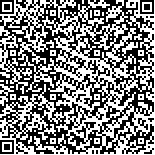| This article has been:Browse 687Times Download 1016Times |

scan it! |
|
|
| DOI:10.13522/j.cnki.ggps.2024301 |
|
| Impact of biochar, irrigation and nitrogen fertilization on yield and resource use efficiency of drip-irrigated winter wheat in Northern China |
|
QIN Jingtao, LYU Mouchao, LI Hao, ZHANG Wenzheng, TIAN Guilin
|
|
Institute of Farmland Irrigation, Chinese Academy of Agricultural Sciences/Key Laboratory of
Water Saving Irrigation Engineering, Ministry of Agriculture and Rural Development, Xinxiang 453002, China
|
| Abstract: |
| 【Background】Agricultural production in Northern China faces two major challenges: water scarcity and low fertilizer efficiency. Improving management practices to enhance water and nitrogen use efficiency is therefore crucial for developing sustainable agriculture in this region. This study investigates how biochar application, irrigation, and nitrogen fertilization can be optimized to improve crop growth and yield. 【Method】A field experiment using a three-factor, three-level orthogonal design was conducted in a winter wheat field from 2021 to 2022. The experiment included three biochar application rates (0, 12.5, and 25 t/hm2), three irrigation treatments (75%, 100%, and 125% of evapotranspiration), and three nitrogen application levels (120, 180, and 240 kg/hm2). During the experiment, we measured grain yield, water use efficiency (WUE), and nitrogen use efficiency (NUE) of the crop. 【Result】Biochar application had an insignificant effect on water consumption, nitrogen accumulation, grain yield, WUE, and NUE. Irrigation levels did not significantly affect grain yield; however, increasing irrigation increased water consumption and decreased WUE, though these effects were not statistically significant. Increasing nitrogen fertilization significantly enhanced grain yield and nitrogen accumulation but reduced NUE. Statistical analysis indicated that nitrogen application was the primary factor affecting grain yield, nitrogen accumulation, and NUE, whereas irrigation and biochar application had no significant impact on these traits.【Conclusion】Irrigating at 75% of evapotranspiration did not reduce grain yield and resulted in the highest WUE. Due to high precipitation during the experiment, however, the optimal management strategy for winter wheat under drip irrigation in this study was 0 t/hm2 of biochar, 100% of evapotranspiration for irrigation, and 240 kg/hm2 of nitrogen fertilization. |
| Key words: biochar; irrigation; nitrogen application; winter wheat; water and nitrogen utilization efficiency |
|
|